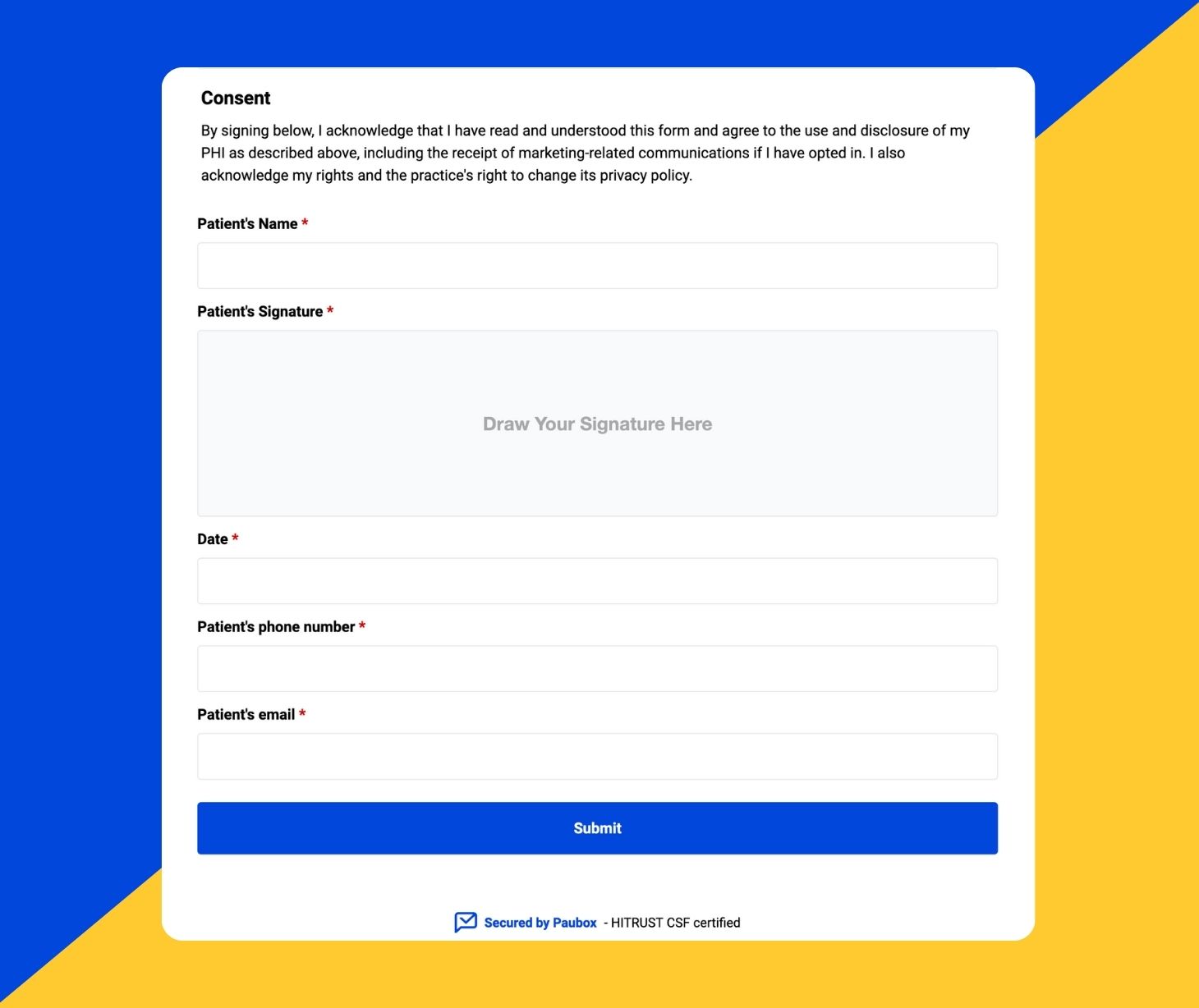
HIPAA defines patient consent under the Privacy Rule, specifying that covered entities, such as healthcare providers, health plans, and healthcare clearinghouses, do not universally require written consent for routine activities like treatment, payment, and healthcare operations. Instead, written authorization is mandated for most other uses and disclosures, outlining specific details. Patient consent is significant for HIPAA compliance as it empowers individuals to control the use and disclosure of their health information.
Do healthcare organizations need written consent for every use or disclosure of a patient's PHI?
No, written consent is not universally required. Routine activities like treatment, payment, and healthcare operations do not demand written consent. The HHS further clarifies that "The Privacy Rule allows those doctors, nurses, hospitals, laboratory technicians, and other health care providers that are covered entities to use or disclose protected health information (PHI), such as X-rays, laboratory and pathology reports, diagnoses, and other medical information for treatment purposes without the patient’s authorization." However, for most other uses and disclosures, written authorization is necessary. This includes marketing efforts or sharing PHI with entities outside the healthcare circle.
What information needs to be included in a HIPAA consent form?
A HIPAA consent form is detailed and must include specifics such as:
- the purpose of disclosure,
- entities involved,
- and the expiration date.
This ensures clarity and transparency regarding the scope and duration of the authorization.
Can a patient revoke their consent later?
Absolutely. Patients can revoke their consent at any time, granting them control over their PHI. However, this revocation might not apply to information already used or disclosed based on the prior authorization. In other words, while future uses and disclosures will adhere to the revocation, actions taken before the revocation will remain valid.
Can covered entities deny treatment if a patient refuses to provide consent for routine operations?
Healthcare entities are prohibited from linking treatment to providing consent for routine operations under HIPAA regulations. The Privacy Rule states that treatment, payment, and enrollment eligibility must not be conditioned on obtaining consent for uses and disclosures not permitted by HIPAA.
How can healthcare organizations ensure their staff understands the difference between consent and authorization?
Implement comprehensive training for staff members to facilitate seamless understanding. Clearly delineate scenarios where consent and authorization apply, emphasizing the distinctions. Offer practical guidance on selecting and completing the appropriate forms, ensuring that staff are equipped with the knowledge to navigate the nuances of patient interactions. Additionally, provide clear instructions on following the prescribed procedures for obtaining consent or authorization, fostering a uniform and compliant approach across the healthcare organization.
Can covered entities use a single form for both consent and authorization?
While using a single form for consent and authorization is allowable, you must establish clear distinctions within the document. Ensure that the language and sections addressing consent and authorization are unambiguous to avoid potential confusion among staff and patients. Clearly delineate the purposes and implications of consent versus authorization, making it evident where each applies.
Related: How does HIPAA differentiate between consent and authorization?
What if a patient cannot provide consent?
In situations where a patient cannot provide consent, adhere to established procedures for obtaining it from a legally authorized representative. This ensures that decisions align with the patient's best interests and comply with legal requirements. Identifying and involving a representative, such as a family member or legal guardian, safeguards the patient's well-being and upholds ethical standards.
Are healthcare organizations required to ask patients for consent or authorization to share their PHI with public health authorities?
For public health reporting requirements, consult specific guidance from HHS. Unlike routine disclosures, public health reporting may not always require patient consent or authorization, especially in situations where it is mandated by law or deemed necessary to protect public health.
Can patients review or obtain a copy of their consent or authorization form after signing?
Patients have the right to review and obtain a copy of their signed consent or authorization form upon request. This transparency ensures patients know what they have agreed to and have a record of the information shared or disclosed. Healthcare providers should promptly provide patients with their consent or authorization documents when requested, contributing to a patient-centered approach and reinforcing trust in the healthcare relationship.
Subscribe to Paubox Weekly
Every Friday we'll bring you the most important news from Paubox. Our aim is to make you smarter, faster.



